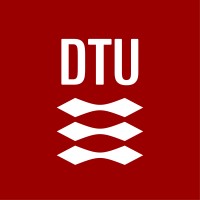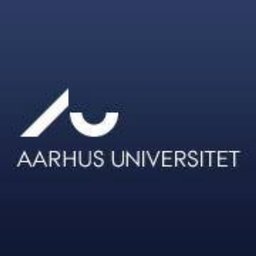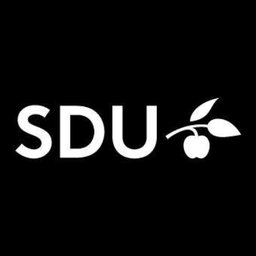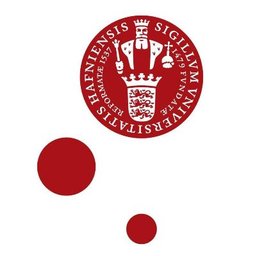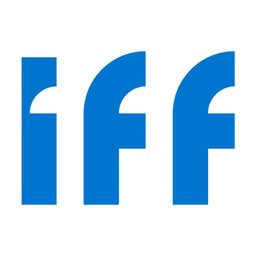These days, the inner workings of molecules and materials can be probed and modelled by advanced simulation tools on modern computer architectures. However, the routine applications of the overwhelming majority of all such tools in existence today yield properties that fail to map to bonds, the entities of main interest to most of synthetic chemistry.
To that end, BONDS – a new long-term project funded by the Novo Nordisk Foundation and led by Assoc. Prof. Janus Juul Eriksen @ DTU Chemistry – revolves around the development of new decompositions of molecular properties into local contributions that can provide key insight into the role of individual functional groups and the bonds that link these. The BONDS project has as its ambition to develop novel, interpretative computational tools capable of providing answers to some of today’s most pressing grand challenges in the domains of chemistry and life sciences at large.
We are offering a 2y-postdoc position for a talented, motivated, and ambitious candidate to help develop these new manners by which to promote bonds as kernels in the interpretation of chemical simulations. For this purpose, novel theory and simulation software will need to be developed. The ideal candidate for the position is a driven early-career scientist with a deep and genuine interest in seeking to better influence and complement chemical synthesis by inferring mechanistic details, reaction rules, and help establish more sophisticated rational design protocols. Ultimately, the BONDS project has the potential to allow for furthering our current understanding of fundamental processes and transformations in chemistry with broad implications on both industrial practices and society as we know it. You will play a pivotal part in achieving this exciting and challenging goal.
Responsibilities and qualifications
As a postdoc in our lab, you will be involved in both theoretical and practical methodological developments, in accordance with the research area described above, the implementation of these within optimized computer code, but also large-scale applications of the resulting methods to various chemical problems of interest. Candidates with a strong background in theoretical and computational chemistry or physics will be preferred, but candidates with a solid background in statistics, computer science, and/or mathematics are also encouraged to apply. Programming skills (e.g., Python, Julia, or Rust, but preferably also one of the languages Fortran/C/C++) are highly desirable, as is a clear motivation to conduct theoretical work at the forefront of contemporary electronic-structure theory in a thriving academic environment @ DTU Chemistry in the greater Copenhagen area.
The ideal candidate should be able to work independently, assist in the training of M.Sc. and PhD students in the lab, and be confident in both written and spoken English. In addition, the applicant should be socially intelligent, open to collaboration, creative, ambitious, and scientifically excellent.
As a formal qualification, you must hold a PhD degree (or equivalent).
We offer
DTU is a leading technical university globally recognized for the excellence of its research, education, innovation and scientific advice. We offer a rewarding and challenging job in an international environment. We strive for academic excellence in an environment characterized by collegial respect and academic freedom tempered by responsibility.
Salary and terms of employment
The appointment will be based on the collective agreement with the Danish Confederation of Professional Associations. The allowance will be agreed upon with the relevant union.
The period of employment is for 2 years. Starting date is 02 January 2026 (or according to mutual agreement). The position is a full-time position.
You can read more about career paths at DTU here.
Further information
Further information may be obtained from Associate Prof. Janus Juul Eriksen ([email protected]) or the Head of Section, Prof. Esben Thormann ([email protected]).
You can read more about DTU Chemistry at www.kemi.dtu.dk/english.
If you are applying from abroad, you may find useful information on working in Denmark and at DTU at DTU – Moving to Denmark.
Application procedure
Your complete online application must be submitted no later than 14 September 2025 (23:59 Danish time). We will be evaluating candidates on a running basis, also prior to the application deadline.
Applications must be submitted as one PDF file containing all materials to be given consideration. To apply, please open the link "Apply now", fill out the online application form, and attach all your materials in English in one PDF file. The file must include:
- A letter motivating the application (cover letter)
- Curriculum vitae
- Grade transcripts and B.Sc/M.Sc/PhD diploma (in English) incl. description of grading scale
- List of publications
- Research sample. Please submit a recent paper or preprint that you’re particularly proud of, alongside possibly also your PhD thesis (or an advanced draft). In any case, please add a cover with a short paragraph explaining your contributions.
- Possible letters of recommendation
Please note that you may apply prior to obtaining your PhD degree but cannot begin the position before having formally defended and received it.
Applications received after the deadline will not be considered.
All interested candidates – irrespective of age, gender, race, disability, religion, or ethnic background – are encouraged to apply. In our lab, we strive to attract and develop a heterogeneous group of talented people through scientific excellence, attentive teaching, as well as careful and supporting mentoring, all with an appreciation of diversity, equality, and inclusion at its core.
As DTU works with research in critical technology, which is subject to special rules for security and export control, open-source background checks may be conducted on qualified candidates for the position.
DTU Chemistry is a department with a high level of research activities, a focus on high-impact dissemination of our research, and a department with a great emphasis on educating the future generation of chemists and chemical engineers.
Technology for people
DTU develops technology for people. With our international elite research and study programmes, we are helping to create a better world and to solve the global challenges formulated in the UN’s 17 Sustainable Development Goals. Hans Christian Ørsted founded DTU in 1829 with a clear mission to develop and create value using science and engineering to benefit society. That mission lives on today. DTU has 13,500 students and 6,000 employees. We work in an international atmosphere and have an inclusive, evolving, and informal working environment. DTU has campuses in all parts of Denmark and in Greenland, and we collaborate with the best universities around the world.
